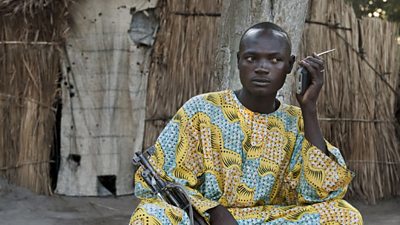Downloads
Publication date: October 2013
Overview: The paper focuses especially on fractured, fragile states where religion, politics, ethnicity or other factional fault lines divide society. The central part of the paper focuses on four states: Afghanistan, Iraq, Kenya and Somalia.
Conclusions include:
- Media is increasingly vulnerable to co-option by factional actors in fragile states. The effects of such co-option, and strategies to support genuinely independent media working in the public interest, should be better prioritised in assistance to fragile states.
- Media freedom and freedom of expression have often been sacrificed in the interests of state stability in fragile states. Such sacrifices often do more harm than good. Efforts to control media and open communication systems are likely to be ineffective and counterproductive in increasingly connected 21st-century communication environments.
- Support to free and professional media needs is poorly integrated and reflected in most development assistance strategies to fragile states. Media that enables dialogue across the faultlines that exist in fractured fragile states is a particular priority.
